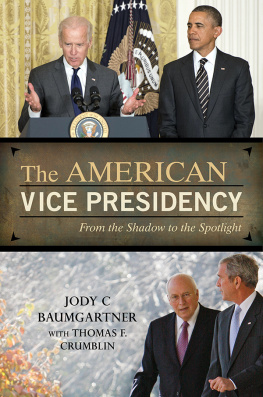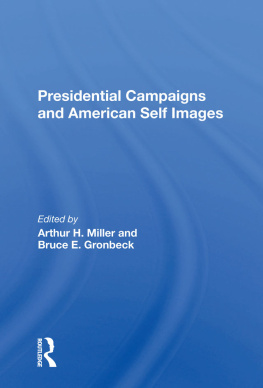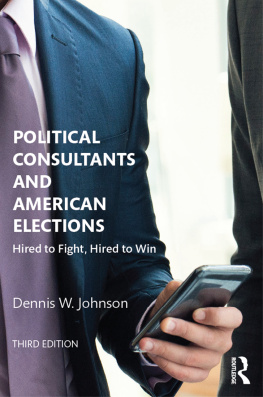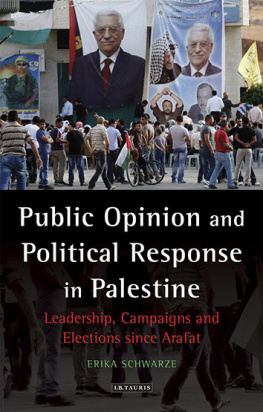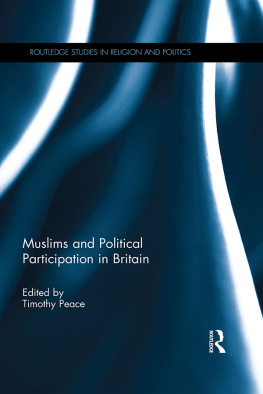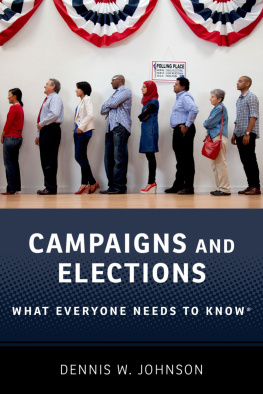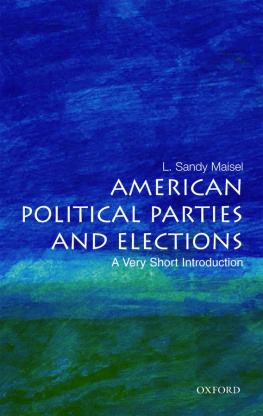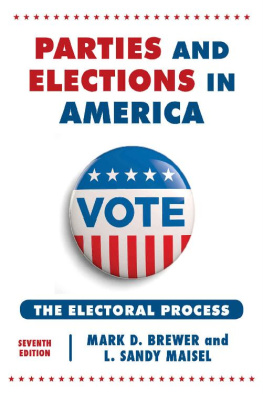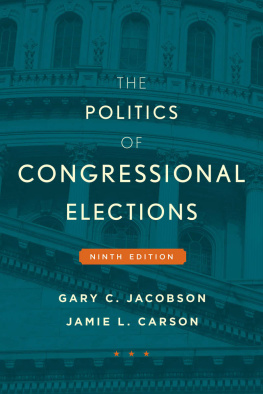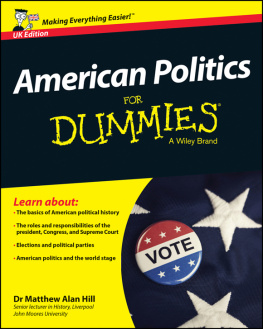About the Authors
Jody C Baumgartner, Ph.D., is assistant professor of political science at East Carolina University. He received his Ph.D. in political science from Miami University in 1998, specializing in the study of campaigns and elections. He has several books to his credit, including Modern Presidential Electioneering: An Organizational and Comparative Approach (2000); Checking Executive Power (2003), co-edited with Naoko Kada; The American Vice Presidency Reconsidered (2006); Conventional Wisdom and American Elections: Exploding Myths, Exploring Misconceptions (2007), written with Peter Francia; and Laughing Matters: Humor and American Politics in the Media Age (2007), co-edited with Jonathan Morris. He has also written or collaborated on two dozen articles and book chapters on political humor, the vice presidency, and other subjects.
Peter L. Francia, Ph.D., is associate professor of political science at East Carolina University. He is the author of The Future of Organized Labor in American Politics (2006) and coauthor of The Financiers of Congressional Elections (2003). Francia has written dozens of articles and book chapters on American elections, campaign finance, election reform, interest groups, and political parties, and has provided commentary for several media outlets, including CNN, National Public Radio, and the Wall Street Journal . He holds a doctorate in government and politics from the University of Maryland, College Park.
Acknowledgments
I n the course of writing and preparing this book we benefited from a great deal of assistance. Preparation of the first edition was helped greatly by the careful work of our graduate assistant, Michael Shaw. In addition, Nathan Bigelow of Austin College and Renan Levine of the University of Toronto both read the first edition and their suggestions helped improve the overall clarity and quality of this book.
Our colleagues in the political science department at East Carolina University (ECU) have also been quite helpful throughout our tenure here. Professor Jonathan Morris offered useful advice to us when we confronted difficulties during the project. Our department chair, Brad Lock-erbie, offered many useful suggestions and was very generous with his support. Other colleagues at ECU have been exceptionally generous in encouraging our research efforts. In addition to the support we received from our colleagues at ECU, Thomas Crumblin and Michael Miller were kind enough to read the manuscript and offered many useful suggestions. Christopher Roper, Whitney Oliver, and Kristen Casper also helped with proofreading and research. We also owe a debt of gratitude to our editor at Rowman & Littlefield, Niels Aaboe, for his helpful suggestions and assistance with this project.
Finally, we would like to thank our wives, Lei Baumgartner and Kali Francia, for their support and patience.
1
Vanishing Voters
Misconceptions about Voter Turnout
and the Youth Vote
V oting behavior is one of the most thoroughly studied subjects in political science. One could literally fill entire rooms with the amount of scholarship that has been devoted to understanding how and why voters and potential voters exercise their most fundamental of democratic freedoms. Nevertheless, despite decades of voluminous research, there are several commonly held assumptions about voting behavior that are problematic.
For example, conventional wisdom, as well as several academic studies, has long held that American voter turnout is in decline. While there is some truth to this assertion, the overall picture is more complex. Recent research suggests that the decline in American voter turnout might not be as steep as many observers suggest it is.1 Moreover, discussions about declining voter turnout in the United States typically ignore the fact that voter turnout has declined in most other established democracies as well. A second myth that pervades discussion about voter turnout is the idea that in any given election, young Americans (eighteen- to twenty-four-year-olds) will turn out in record numbers to decide the election. But while voter turnout within this age group increased in both 2004 and 2008, in neither year did it exceed the record set in 1972.
In the next section we will examine the factors that political science research has suggested can affect voter turnout, either negatively or positively. Following this we will examine in some detail the source of the myth of vanishing voters in the United States, namely, the way turnout figures are usually calculated and reported. We then examine voter turnout in the United States and other established democracies in the past several decades. In the final section we turn our attention to the question of youth voter turnout.
FACTORS THAT AFFECT VOTER TURNOUT
Discussions about voting behavior in the United States often begin with the premise that Americans do not vote in numbers equal to the past or that they do not vote in numbers proportionate to citizens in other democracies. Most American government textbooks frame the discussion of voting in the United States in terms of low voter turnout, noting correctly that the United States ranks near the bottom of the world in voter turn-out.2 During the campaign of 2000, a number of stories covered subjects such as why Americans dont vote, or predicted that voter turnout may slip again.3 The picture these accounts present, at least implicitly, is that our democracy is in decline.4
Many scholars echo similar sentiments. Works such as The Disappearing American Voter , Why Americans Dont Vote , Why Americans Still Dont Vote (emphasis added), Why America Stopped Voting , and Where Have All the Voters Gone? all suggest in their titles that American voter turnout is in decline.5 One author, for example, explicitly refers to the turnout problem.6 Another summarizes, In ever larger numbers over the past three decades, Americans have been tuning out campaigns and staying home on Election Day. Turnout has fallen in virtually every type of American election.7
There are a variety of explanations offered for the decline in voter turn-out in this research. We can divide these explanations into two broad categories, institutional and non-institutional factors. Institutional factors focus, simply, on the rules governing the administration of elections. The act of voting in the United States is more difficult than it is in other democracies, and this, it is theorized, drives turnout down. Borrowing from economists, some political scientists hold that individuals are rational actors who weigh the costs of voting against its perceived benefits. For example, traveling long distances to reach a polling place might be too much of a cost when compared with the difference (benefit) one vote might make. A second set of explanations deals with characteristics of individuals themselves that might make them less inclined to participate or how the campaign itself might motivate or mobilize people to vote.
Institutional Factors: The Rules
The first and most important thing to understand about the rules governing the administration of elections in the United States is that states make most of these rules. Beyond complying with anti-discrimination provisions contained in the Voting Rights Act of 1965, states are free to set their own standards for voter registration, determine the location of polling places, how long these polling places will be open, set absentee ballot requirements, and more.8 There is, for example, no universal answer to the question, what do I have to do to register to vote?
This said, several general aspects of election law in the United States are important to understand in a discussion of possible reasons why people do not vote. Many studies suggest that restrictive laws, such as registration laws, or in particular, deadlines that force citizens to register early in the election season, result in decreased levels of voter turnout.9 For example, in most states, people are required to register to vote before Election Day. The length of time varies from state to state, but it is usually at least a few weeks prior to the election.


